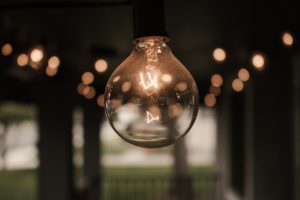Safety Around Your Home
Electricity surrounds us – shaping the universe in which we live and driving modern society of which we are a
part. It permeates the physical world completely. Thus, to know more about it and to understand it further is
important. The first and most critical aspect to learn about electricity is safety. Playing around with electricity can
be dangerous. Make sure that you and your family know how to work with electricity safely.
Conducting Important Routine Safety Inspections
Appliances needing repairs or replacement should be attended to immediately. Not doing so could result in an
accident. In your home, breakages and excessive wear and tear on electrical equipment can occur frequently so
you need to make regular inspections and take precautions to ensure your safety.
Here are some general points to look for when making an inspection:
Breakages
Wear/deterioration
Signs of overheating
Missing parts (screws, covers, switches)
Faulty appliance controls
Doors and covers not closely smoothly or adequately.
Correct labeling when needed (eg. Electricity requirements)
Loose Fixtures or fittings
It is also important to test your equipment regularly – switch it on and off and look for possible problems or faulty
connections. Taking time to make sure you are using your equipment safely could save your life later on.
Plugs and Electric Sockets
In this day and age, plugs are an essential part of our lives as we depend on electricity for almost everything we
do. Therefore, it is important for people of all ages to know how to use plugs safely. The following tips are for you
to use when buying and using plugs.
1. Look for the SABS sign and only use SABS approved plugs.
2. Do not overload plugs – rather use an adaptor.
3. Do not pull a plug by the cord.
4. Switch the switch off at the wall socket, before pulling the plug out.
5. Do not connect electrical appliances to light sockets.
6. Ensure that all wall sockets have their switches in the "off" mode, when not in use.
7. Never put bare wires into sockets.
8. Do not stick fingers into sockets.
9. If there are babies in the house, ensure that wall sockets are covered with a safety cap, keeping the area
safe for babies to play in.
* Souced from site: www.eskom.co.za
